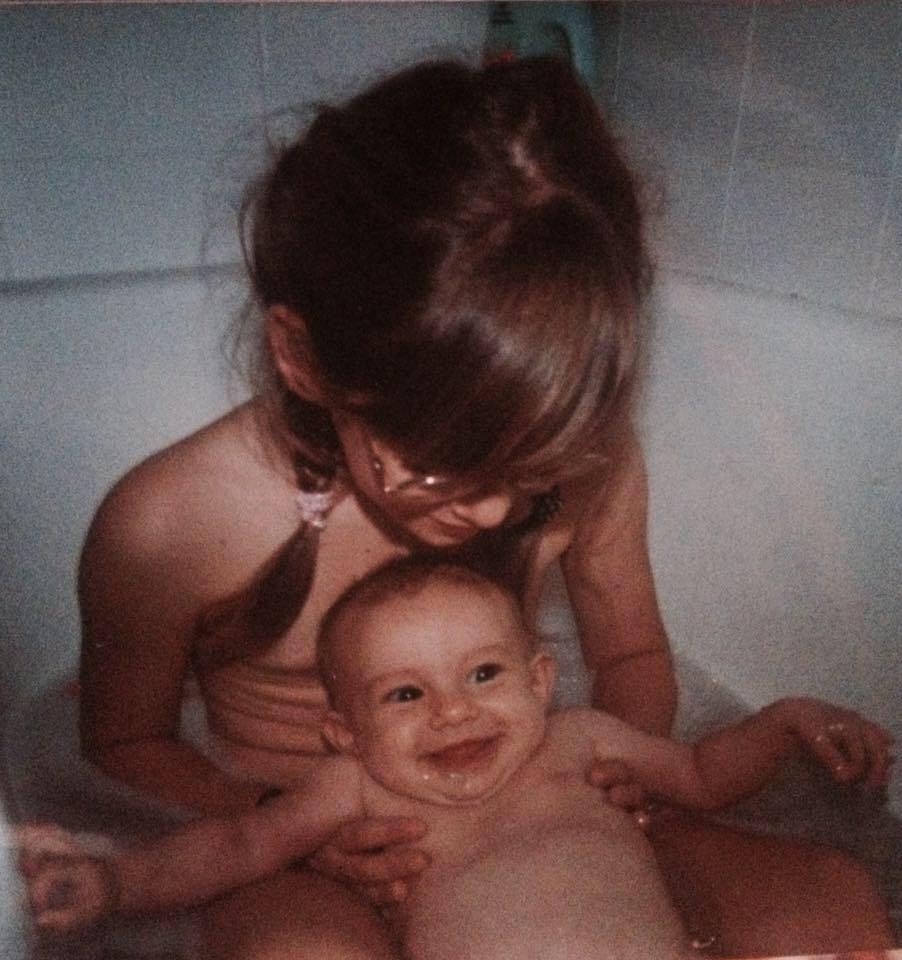Most of us began using social media when we were in our pre-teens. As for Facebook, I remember ruthlessly lying about my age when I first signed up at 11 years old. But at the very least, at the time, I had some sort of awareness of what I wanted/didn’t want appearing on my profile. I chose what to post, I could choose not to be tagged in something, and, in extreme scenarios, I could request to have something taken down if I reputed it inappropriate or harmful. But what about people who don’t have this possibility? What about kids whose parents post pictures of them, just a few moments after their birth? Some of them are even lucky enough to have their own bath-time picture posted to social media, with all the crown jewels on show.

Although on the one hand, this is done because of the parents’ intent to celebrate and commemorate milestones in their lives and their children’s life, it seems ever more likely that we will have a generation of people who’s data and images will already be public before they even decide how to walk, let alone form a political worldview.
Worse still: in 2010, artist Nina Maria Kleivan released pictures taken in 1999 of her small child dressed up as various dictators, such as Pinochet and Hitler. 20 years later, these pictures are now available for anyone to see on her website. If this child were to one day get into politics, or be a public figure to any degree at all, do we really think that the internet wouldn’t get ahold of these pictures and add this child the long list of victims of cancel culture? We know all too well that the internet has viciously persecuted public figures for statements and pictures that came into existence many years ago, when certain social and ethical norms were not yet widespread (see Justin Thrudeau). So this mother actively put her child in a vulnerable position from a very young age for the purpose of art, with the knowledge that those pictures might be used against her daughter when she is older.
In any case, the content showing these children, whether it contain nudity, controversy or simply their face, will likely remain on the internet for many years to come, or at least until current social media platforms exist. That being said, we know at this point that such platforms keep and process our data if we abandon or stop using it. So, whether it be birthdays, christenings, first days of school or simply a childhood picture that one might not want online, it will stay in the meanders of social media until the child (-come-adult) will come across it.
I have tried to imagine possible solutions to this problem. Although quite unlikely for now, I really think we will see an increase in controversies surrounding the topic and -who knows?- maybe even court cases. Children who accuse their parents of making their data public without their consent seem only a few years away. Here are my ideas:
- When the child turns 18, they must review in detail all the existing content that contains their image or personal information. That way, they begin their adult life in control of the public information that exists on them.
- We ban parents from posting information about their children. This is absurd because it is well within someone’s right to share their life (including the life of their loved ones) on social media. Above that, as time progresses it is frankly unlikely that, in such a digitalised world, there will be no information on the child online until they turn 18. I have met parents who forbid images of their children to be posted online and I find it ridiculous and time-consuming, not to mention almost impossible.
- We stipulate an online, social contract whereby we forbid judgements to be made on someone based on their online activity from more than 5 years ago. This one is my personal favourite because I am tired of people losing their career over a ten-year-old tweet, and because Lord knows how much stupid shit I posted on my Facebook when I was 13 or 14. It also means that poor baby dressed as Hitler can avoid controversy and get into politics without being compared to the Nazis all the time. It is the most ideal option as much as it is the most unlikely option.

In the same way kids don’t decide what to wear, where to go, and if or not to appear in public, they are under their parents tutelage also when it comes to being shown (-off?) online. But the children are also within their right to become their own people without their image being tainted by their parents choices and online behaviour. This is why both social media companies and the law must decide on these issues soon, before court cases appear of children claiming rights over Facebook pictures of themselves.
To conclude, I decided to conduct my own research by deepdiving into my mother’s Facebook profile, started in 2009. Until I became friends with her in 2017 (when I moved to the Netherlands), I had no idea what she’d been posting about me to her 894 friends..



One’s mother’s Facebook is always a delight, is it not? I stand behind all of your ideas, but would the age of the second one to something around 16 or so, at which point kids can have a say in their online presence.
I agree there should be serious regulation/ social rules about parents uploading pictures of their children online, as you said these can be quite harmful for a child when they become self aware and others become aware of these pictures as well, I can already imagine bullies getting their hands on such pictures, as well as a general right to privacy that you also pointed out. I truly hope this trend passes quickly.
I disagree however with your statement of cancel culture and your third point of your post, and I’d like to explain why.
First of all I believe that “cancel culture” has been massively overhyped by concervative media stations as well as clickbait holes as an easy target for ridicule and dismissiveness to legitimate critique as well as simple freedom of expression. As well as that, when those who cry cancel culture repeat the exact same narrative or sometimes even more intensively it is not portayed as cancel culture, while there are plenty of ridiculous examples on that side as well, such as the boycot starbucks a few years back. As to your statement of the 5 year rule, I would agree to some extend, taking the following into account, the severity of the ‘offense’, whether it is part of a still reaccuring pattern, and whether there has been some an apology of some sort.
I found these articles that helped my understanding of cancel culture: https://newrepublic.com/article/155141/cancel-culture-con-dave-chappelle-shane-gillis as well as this post: https://www.vox.com/policy-and-politics/2018/8/3/17644180/political-correctness-free-speech-liberal-data-georgetown